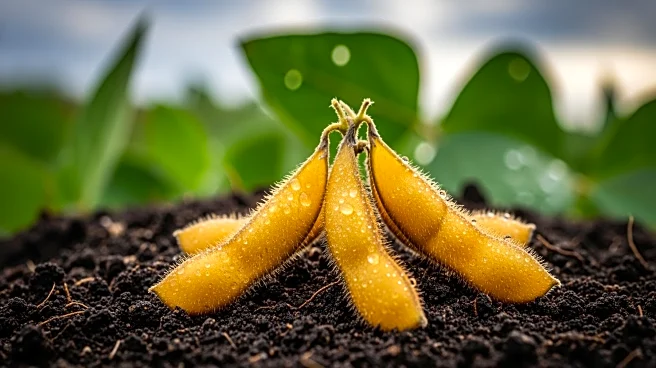What's Happening?
A new trade agreement between the United States and Japan promises significant benefits for the American agricultural sector. The United States-Japan Agreement includes Japan's commitment to increase its purchases of U.S. agricultural products by $8 billion annually. This includes a 75% increase in U.S. rice procurements and expanded purchases of corn, soybeans, fertilizer, and bioethanol. In 2024, the U.S. exported nearly $12 billion in agricultural goods to Japan, making it the fifth-largest market for American farm products.
Why It's Important?
The trade deal represents a substantial opportunity for U.S. farmers to expand their market reach and increase export revenues. Japan's commitment to purchasing more American agricultural products could help stabilize the U.S. farm economy, which has faced challenges due to fluctuating trade relations and market access. The agreement also underscores the importance of international trade partnerships in supporting domestic agriculture and enhancing economic growth.
What's Next?
The implementation of the trade agreement will likely lead to increased agricultural exports to Japan, benefiting U.S. farmers and related industries. Monitoring the impact of these increased exports on domestic agricultural markets and prices will be essential. The deal may also encourage further trade negotiations with other countries, aiming to secure similar commitments and expand global market access for American agricultural products.











